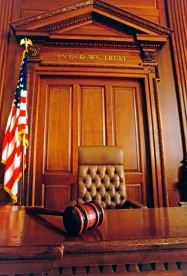Stockholder books and records demands are investigatory tools that often are a prelude to litigation directed at corporate fiduciaries. In rejecting a stockholder books and records demand, the Delaware Court of Chancery recently made clear that it will look behind the stated purpose of a stockholder demand where evidence suggests that the stockholder is merely fronting an initiative led by an entrepreneurial plaintiffs’ law firm. The case was Wilkinson v. Schulman, No. 2017-0138-VCL (Del. Chan. Nov. 13, 2017). In this regard, the decision bolsters the position of Delaware corporations confronting lawyer-driven litigation forays that come by way of books and records demands, while at the same time requiring that stockholders be active participants in the demand process.
The Wilkinson case involved a demand to inspect the books and records of A. Schulman, Inc., a Delaware corporation. Under the Delaware General Corporation Law (the “DGCL”), 8 Del. C. § 220(b), stockholders have a right to review corporate books and records (beyond the stock ledger or a list of stockholders) “for any proper purpose,” which in turn is defined as “a purpose reasonably related to such person’s interest as a stockholder.” The requesting stockholder bears the burden of demonstrating a proper purpose. Mr. Wilkinson, a stockholder of A. Schulman, ostensibly sought corporate records to investigate potential board misconduct relating to the accelerated vesting of over 100,000 shares of restricted stock for Schulman’s retiring president and CEO. After the corporation denied his inspection demand, Wilkinson commenced a summary books and records action in the Delaware Court of Chancery, as permitted by DGCL Section 220(c). The case was disposed of on a paper record.
Limited pre-trial discovery revealed that the law firm representing Mr. Wilkinson was the driving force behind the demand, having basically enlisted Mr. Wilkinson to front the effort. Moreover, Mr. Wilkinson admitted on the evidentiary record that he had contacted the firm in connection with losses unrelated to the vesting of restricted shares, was not an active participant in the demand process, did nothing with respect to the initial demand after signing it, did not confirm the accuracy of the petition filed with the court, and had no involvement responding to written discovery. The record further established Wilkinson’s participation in at least seven prior stockholder lawsuits, each involving the plaintiffs’ firm representing Wilkinson in the books and records action.
The Court found that this particular stockholder, while identifying a purpose that was facially proper, was not “driving the bus” and denied the stockholder’s inspection demand. The court observed that “retaining counsel to carry out the stockholder’s wishes is fundamentally different than having an entrepreneurial law firm initiate the process, draft a demand to investigate different issues than what motivated the stockholder to respond to the law firm’s solicitation, and then pursue the inspection and litigate with only minor and non-substantive involvement from the ostensible stockholder principal.” On this record, the court held that a proper purpose under DGCL Section 220(b) had not been shown.
The Wilkinson decision once again makes clear that DGCL Section 220(b)’s proper purpose requirement is more than merely academic. Moreover, in what appears to be a case of first impression, it establishes that where evidence demonstrates that a books and records demand is being pursued to serve the purposes of an enterprising plaintiffs’ law firm rather than the stated stockholder purpose, a “proper” purpose is lacking.
Delaware corporations facing stockholder books and records demands would be well served to take note of the Court of Chancery’s decision in Wilkinson, especially where circumstances suggest that the stockholder merely is lending his or her name to an opportunistic plaintiffs’ firm. Delaware stockholders pursuing Section 220 inspection rights likewise should take note of this decision, making sure to remain actively involved in all facets of the books and records demand process.






 />i
/>i
